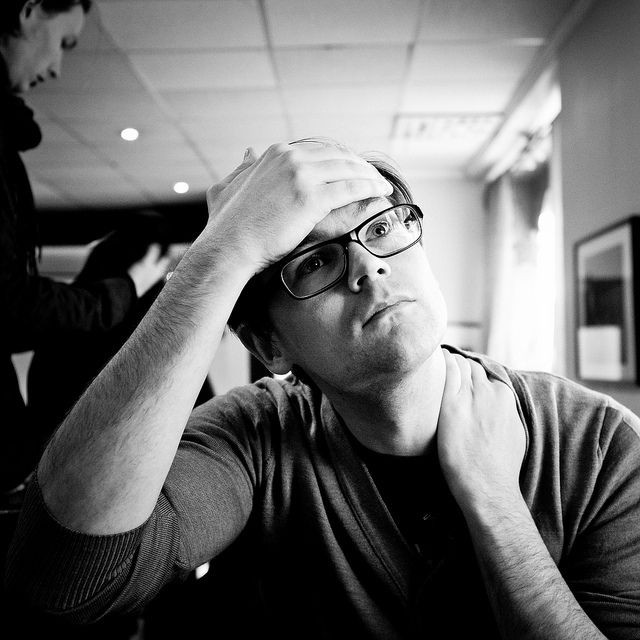Heart Disease Accelerates Male 'Menopause', Stymies Sex Life

Heart problems hasten the onset of 'male menopause' — a.k.a. andropausal syndrome — according to a study being presented at the Heart Failure Congress this weekend in Lisbon.
Andropause symptoms range from erectile dysfunction and decreased sex drive to pain in joints. The disorder is thought to be caused by an aging-related decline of male sex hormones, 'androgens', including testosterone. Unlike female menopause, where hormone levels plummet over a short timeframe, andropause usually takes decades to develop, with a steady one percent drop in testosterone each year starting at age 30.
Also known as 'male hypogondism', it is estimated that one in five men over 60 suffer from low testosterone, but the disorder can strike as early as 35. Heart disease also increases as men age, and a team of physicians at Wroclaw Medical University (Poland) wondered if two are linked.
"Andropausal syndrome leads to poor quality of life," said co-author and cardiologist Dr. Ewa Jankowska. "We wanted to discover whether [congestive] heart failure increases andropausal syndrome and whether additional androgen therapies could improve quality of life in heart failure patients."
Nearly three million men in the US have 'congestive heart failure' (CHF), a chronic condition where the heart pumps lower than normal levels of blood. It is estimated that 75 percent of these men also suffer from erectile dysfunction.
For this study, 232 men with congestive heart failure were recruited along with 362 healthy controls. Their ages ranged from 40 to 80, and each was surveyed for symptoms for male menopause, which are broken into three categories:
1. Sexual: erectile dysfunction, decreased sex drive, less facial hair
2. Psychological: feeling discouraged, depressed, irritable, anxious, or nervous
3. Physical: joint and muscle pain, sweating, sleep dysfunction, exhaustion
The researchers found that one out of three men with CHF had male menopause. When they looked at the youngest age group (40-59), they discovered that CHF led to a four-fold increase in the prevalence of andropause (28 percent vs. 7 percent). Older men (aged 60-80) had similar rates of andropause, whether or not they had CHF, which is consistent with low testosterone being a general hallmark of advanced age. Given the higher prevalence of andropause symptoms in men aged 40-59 with this cardiac disease, maintaining a healthy heart could be the key to a strong sex drive in middle-aged men.
Jankowska concluded: "Further research is needed to determine whether androgen supplementation can reduce the severity of andropausal symptoms."
Source: Tkaczyszyn M, Nega K, Lopuszanska M, Szklarska A et al. Andropausal syndrome in men with systolic chronic heart failure. European Journal of Heart Failure. 2013.
Published by Medicaldaily.com



























